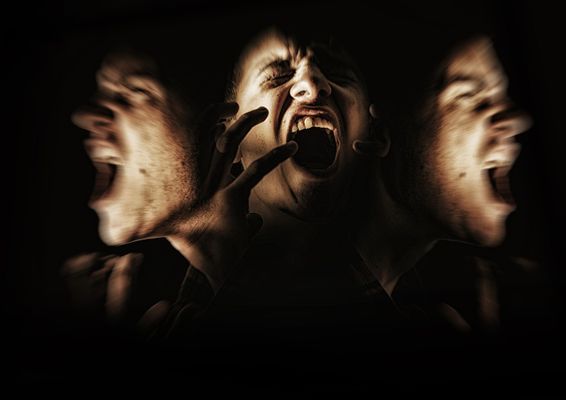4.4.2
Doubling
Doubling: Walton and Victor
Doubling: Walton and Victor
Doubling is a characteristic of Gothic literature, whereby a writer uses a character who seems to be good (often the protagonist) and links them to another character, who is evil.


Duality
Duality
- Doubling often creates echoes of characters or previous scenarios in order to draw parallels which may be unexpected.
- By linking characters in this surprising way, the writer is able to suggest the duality of human beings:
- No person is simply ‘good’ or ‘evil’, but rather, have aspects of both of these.


Letter 1
Letter 1
- “You cannot contest the inestimable benefit which I shall confer on all mankind.”


Walton
Walton
- Walton believes that his endeavours will benefit not just a few people, but all of mankind.
- Furthermore, he seems confident in his ability to achieve these ambitious aims.
- This is supported by his use of the adjective "inestimable", which suggests that even he does not know the value of what he is undertaking.


Victor
Victor
- Like Walton, Victor too believes that his work will benefit the whole world.
- Shelley uses imagery to suggest that Victor sees the natural limits of the world as obstacles to his endeavours, which he will be able to surpass.


Chapter 4
Chapter 4
- “Life and death appeared to me ideal bounds, which I should first break through, and pour a torrent of light into our dark world.”


Parallels
Parallels
- Walton and Victor are similar in their pursuit of knowledge;
- Victor in science.
- Walton in exploration.
- They both believe their discoveries will benefit all of mankind.
- However they differ as Walton stops before inflicting devastation on his crew, unlike Victor who causes multiple deaths.
Doubling: Elizabeth and the Female Creature
Doubling: Elizabeth and the Female Creature
Doubling is a characteristic of Gothic literature, whereby a writer uses a character who seems to be good (often the protagonist) and links them to another character, who is evil.


Volume Three: Chapter 3
Volume Three: Chapter 3
- "The remains of the half-finished creature, whom I had destroyed, lay scattered on the floor, and I almost felt as if I had mangled the living flesh of a human being."


Murder
Murder
- Victor's reflection on what he has done presents the destruction of the second creature as a murder.
- The remains of the creature are scattered, suggesting the power and force with which Victor undertook this act of destruction.


Volume Three: Chapter 6
Volume Three: Chapter 6
- “She was there, lifeless and inanimate, thrown across the bed, her head hanging down, and her pale and distorted features half covered by her hair. Everywhere I turn I see the same figure -- her bloodless arms and relaxed form flung by the murderer on its bridal bier.”


Doubling
Doubling
- After the Monster has murdered Elizabeth, her corpse is presented in a very similar way to the remains of the second creature.
- Shelley uses passive verbs to describe how Elizabeth lies in order to demonstrate the physical force of the Monster over Elizabeth.
- In highlighting the violence of this attack, Shelley echoes the moment in which Victor destroyed the second creature.
Doubling: Victor and the Monster
Doubling: Victor and the Monster
Doubling is a characteristic of Gothic literature, whereby a writer uses a character who seems to be good (often the protagonist) and links them to another character, who is evil.


Duality
Duality
- Doubling often creates echoes of characters or previous scenarios in order to draw parallels which may be unexpected.
- By linking characters in this surprising way, the writer is able to suggest the duality of human beings:
- No person is simply ‘good’ or ‘evil’, but rather, have aspects of both of these.


Volume Two: Chapter 8
Volume Two: Chapter 8
- "From that moment I declared ever-lasting war against the species, and, more than all, against him who had formed me, and sent me forth to this insupportable misery."


Revenge and the Monster
Revenge and the Monster
- The Monster commits to an unceasing pursuit of revenge, figuring it as a war not simply against Victor, but against the species as a whole.
- He seems resigned to the fact that that is all his life can consist of.


Volume Three: Chapter 7
Volume Three: Chapter 7
- “Revenge kept me alive; I dared not die and leave my adversary in being.”


Revenge and Victor
Revenge and Victor
- By the end of the novel, we see how Victor develops a similar obsession with revenge.
- He also sees it as the thing which keeps him alive.
- Shelley demonstrates the overwhelming nature of revenge on both Victor and the Monster in order to criticise its capacity to overpower anybody.
1Plot Summaries
1.1Volume I
2Characters
2.1Victor Frankenstein
2.2The Monster
3Key Themes
3.1Ambition & Pursuit of Knowledge
3.2Prejudice
3.4Companionship & Family
3.5Revenge
3.6Monstrosity
4Authorial Method
4.1Genre & Intertextuality
4.2Form & Structure
4.3Settings & Symbolism
4.4Imagery & Doubling
5Context
6Recap: Main Quotes
6.1Characters Quotes
Jump to other topics
1Plot Summaries
1.1Volume I
2Characters
2.1Victor Frankenstein
2.2The Monster
3Key Themes
3.1Ambition & Pursuit of Knowledge
3.2Prejudice
3.4Companionship & Family
3.5Revenge
3.6Monstrosity
4Authorial Method
4.1Genre & Intertextuality
4.2Form & Structure
4.3Settings & Symbolism
4.4Imagery & Doubling
5Context
6Recap: Main Quotes
6.1Characters Quotes
Unlock your full potential with Seneca Premium
Unlimited access to 10,000+ open-ended exam questions
Mini-mock exams based on your study history
Unlock 800+ premium courses & e-books